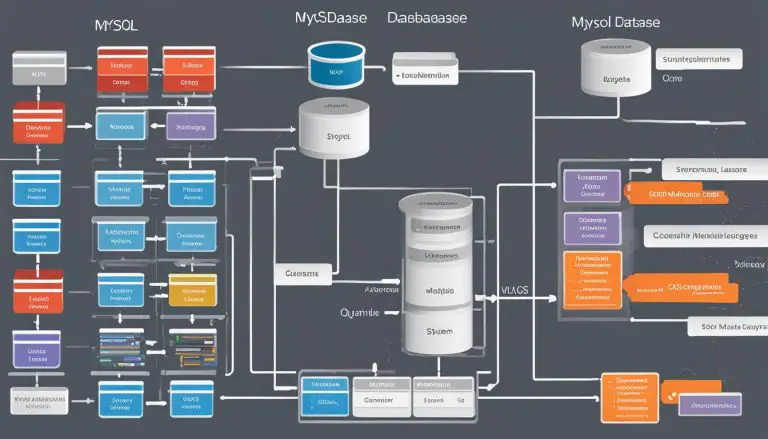Understanding the Concept: What is a Variable Explained
In this article, I will delve into the concept of variables and provide a comprehensive explanation of what they are, their types, how they are used in programming, and their importance. By understanding variables, you will gain valuable insight into their role in mathematics, programming, and problem-solving.
In mathematics, variables are quantities that are not fixed and can be changed. They are represented by symbols, usually letters, that stand for unknown numerical values in equations or algebraic expressions. Variables allow for flexibility and the manipulation of values, making them essential in various mathematical calculations.
In programming, variables serve as placeholders for storing and manipulating data. They are crucial for efficient coding and enable programmers to create dynamic and interactive programs. By declaring and assigning values to variables, programmers can perform calculations, control program flow, and pass information between different parts of the program.
Key Takeaways:
- A variable is a quantity that can be changed and is not fixed.
- Variables are represented by symbols and allow for flexibility in calculations.
- There are different types of variables, such as dependent and independent variables.
- Variables are crucial in programming for storing and manipulating data.
- Understanding variables is important for strong mathematical and programming skills.
What is a Variable?
A variable is a quantity that can be changed and is not fixed. In algebra, it is represented by a symbol (usually a letter) that stands for an unknown numerical value in an equation or an algebraic expression. Variables allow for flexibility and the manipulation of values in mathematical calculations. They can represent various quantities, such as time, temperature, or age, that may vary with time and place.
Variables serve as placeholders for unknown values in mathematical equations and expressions. For example, consider the equation y = 2x + 3. In this equation, the variables y and x represent quantities that can take on different values. The variable x can be any number, and the value of y depends on the value assigned to x. By assigning different values to x, we can calculate the corresponding values of y and explore how they relate to each other.
Variables play a crucial role in solving real-world problems and modeling complex systems. They allow us to represent and analyze the relationships between different quantities. Variables can also be used to represent changing values in programming. In programming languages, variables are used to store and manipulate data, making it easier to perform calculations and create dynamic applications.
Example:
“Let’s consider an example of a simple algebraic expression: 3x + 2. In this expression, x is the variable. By assigning different values to x, we can compute the corresponding output values. For instance, if we set x = 1, the expression evaluates to 3(1) + 2 = 5. Similarly, if we set x = 2, the expression evaluates to 3(2) + 2 = 8. The variable x allows us to perform calculations and explore different scenarios.”
Summary
- A variable is a quantity that can be changed and is not fixed.
- In algebra, variables represent unknown numerical values in equations and expressions.
- Variables allow for flexibility and the manipulation of values in mathematical calculations.
- Variables can represent various quantities that vary with time and place.
- Variables are essential in solving real-world problems, modeling systems, and programming applications.
Types of Variables
In the world of mathematics and programming, variables are essential tools for representing quantities and manipulating data. Variables can be classified into two main types: dependent variables and independent variables.
A dependent variable is a quantity that relies on another variable for its value. It is determined by the value of another variable or variables. For example, in a mathematical equation like y = 2x + 3, y is the dependent variable as its value depends on the value of x. Changes in the value of x will directly affect the value of y. Dependent variables are often used to model relationships or analyze the impact of one variable on another.
On the other hand, an independent variable is a quantity that remains unaffected by other variables. It is not influenced or determined by changes in other variables. In the same equation, x is the independent variable as its value can vary independently of the value of y. Independent variables allow for exploration and experimentation within a system without being influenced by other factors.
Table: Comparison of Dependent and Independent Variables
| Dependent Variables | Independent Variables |
|---|---|
| Determined by the value of other variables | Not influenced by changes in other variables |
| Represent relationships or dependencies | Allow for exploration and experimentation |
Understanding the distinction between dependent and independent variables is crucial for mathematical analysis, data modeling, and programming. It enables researchers and programmers to create accurate models, analyze relationships, and make informed decisions based on the behavior of these variables. By grasping the concept of dependent and independent variables, one can effectively navigate complex mathematical problems and develop efficient algorithms.
Variable Examples
Understanding variable examples is crucial for grasping their role in mathematical calculations and problem-solving. Variables can be seen in various examples of algebraic expressions and equations, showcasing their flexibility in representing unknown quantities and manipulating values. Let’s explore some common examples:
Algebraic Expression Examples
| Expression | Description |
|---|---|
| 2x + 6 | An expression with a variable x that can take any value. The value of the expression changes accordingly. |
| 3x^2 – 5x + 2 | A quadratic expression with a variable x that can represent different values. By substituting different values of x, the expression’s value changes. |
Equation Examples
| Equation | Description |
|---|---|
| 2x + 6 = 12 | An equation with a variable x that can take any value. If a value of x satisfies the equation, it is called a solution. |
| 3x^2 – 5x + 2 = 0 | A quadratic equation where x can represent different values. By finding the solutions to this equation, we can determine the values of x that satisfy it. |
These examples highlight the versatility of variables in mathematics and problem-solving. Variables allow for the representation of unknown quantities and enable us to find solutions to equations and expressions by assigning different values to them. By working with variable examples, we can deepen our understanding of their role in mathematical calculations.
Declaring and Assigning Variables
When working with variables in programming, it is essential to understand how to declare them and assign values. Declaring a variable involves specifying its name and data type, which determines the kind of information it can store. In most programming languages, variables are declared using keywords like “var,” “let,” or “const.” For example:
var x;
This line of code declares a variable named x using the “var” keyword. Once the variable is declared, a value can be assigned to it using the assignment operator (=). For example:
x = 5;
This code assigns the value 5 to the variable x. The value can be a number, a string, a boolean, or any other valid data type depending on the programming language being used. Declaring and assigning variables correctly is crucial for efficient programming and accurate calculations.
Variable Assignment
Assigning a value to a variable allows you to store data and manipulate it within your program. The assignment operator (=) is used to assign a value to a variable. It is important to note that the value assigned to a variable can be changed throughout the program. Let’s consider an example:
var age = 25;
In this example, the variable “age” is assigned the value 25. Later in the program, if we want to update the value of “age,” we can simply assign a new value to it:
age = 30;
Now, the variable “age” has been updated to the value 30. It is important to use variable assignment carefully and ensure that the assigned values are appropriate for the purpose of the program.
Overall, declaring and assigning variables correctly is crucial when working with programming languages. Understanding the syntax and using the assignment operator effectively allows for efficient programming and accurate calculations. By properly declaring variables and assigning them values, you can manipulate data and create dynamic programs that can adapt to different scenarios.
Variable Scope
In programming, variables have different scopes that define their visibility and accessibility within a program. Understanding variable scope is crucial for writing efficient and organized code.
A local variable is declared within a specific block of code, such as a function or loop, and can only be accessed within that block. It has a limited scope and ceases to exist once the block has executed. Local variables are useful for temporary storage and do not interfere with other parts of the program.
On the other hand, a global variable is declared outside of any specific block and can be accessed from anywhere in the program. It has a broader scope and can be useful for sharing information across different parts of a program. However, global variables should be used sparingly as they can lead to confusion and make it harder to track and debug code.
| Variable Type | Scope | Accessibility |
|---|---|---|
| Local Variable | Within a specific block of code | Only within that block |
| Global Variable | Outside of any specific block | From anywhere in the program |
The Importance of Variables
Variables are of utmost importance in various fields, including mathematics, programming, and problem-solving. They provide the necessary flexibility in calculations, enabling us to manipulate values and find solutions to complex equations and algebraic expressions. Understanding the role of variables is crucial for efficient programming and accurate mathematical analysis.
One of the key advantages of variables is the flexibility they offer in calculations. By assigning different values to variables, we can explore various scenarios and analyze the outcomes. This flexibility allows us to model real-life situations and make informed decisions based on the results. For example, in an economic analysis, variables such as price, demand, and supply can be adjusted to understand the impact on market equilibrium.
“Variables enable us to solve problems by representing unknown quantities and finding their values through equations and expressions.”
Variables also play a vital role in problem-solving. They help us represent unknown quantities and find their values through equations and expressions. By assigning variables to these unknowns, we can break down complex problems into manageable parts and systematically solve them. This approach is widely used in fields such as physics, engineering, and economics, where equations are used to model and solve real-world problems.
Furthermore, variables contribute to programming efficiency. They allow us to store and manipulate data, making our code more flexible, reusable, and organized. By using variables, we can write concise and efficient code that performs complex tasks with ease. Variables also enable us to pass information between different parts of a program, enhancing the overall functionality and efficiency of the software.
The Flexibility of Variables in Calculations
The flexibility provided by variables is particularly valuable in mathematical calculations. By assigning different values to variables, we can explore various scenarios and analyze the outcomes. This flexibility allows us to model real-life situations and make informed decisions based on the results.
Variables and Problem-Solving
Variables are essential tools in problem-solving. They help us represent unknown quantities and find their values through equations and expressions. By assigning variables to these unknowns, we can break down complex problems into manageable parts and systematically solve them.
Variables in Programming Efficiency
Variables contribute to programming efficiency by allowing us to store and manipulate data. They make our code more flexible, reusable, and organized. By using variables, we can write concise and efficient code that performs complex tasks with ease. Variables also enable us to pass information between different parts of a program, enhancing the overall functionality and efficiency of the software.

Applications of Variables
Variables play a significant role in both mathematics and programming, providing a versatile tool for solving problems and modeling real-world scenarios. Let’s explore some of the key applications of variables in these two fields.
Variables in Mathematics
In mathematics, variables are extensively used to solve equations, analyze relationships between quantities, and model real-life situations. Whether it’s finding the value of an unknown quantity in a simple algebraic equation or using variables to represent complex mathematical concepts, variables provide a flexible framework for mathematical problem-solving.
For example, in geometry, variables are often used to express the dimensions of shapes and calculate their properties. In calculus, variables are crucial for representing rates of change and finding derivatives or integrals. Variables are also employed in statistics to represent various data points and analyze patterns and trends.
By using variables, mathematicians can create mathematical models that capture the intricacies of real-world phenomena and derive valuable insights and predictions.
Variables in Programming
Variables are a fundamental concept in programming, allowing developers to store and manipulate data. They serve as placeholders for values that can change during the execution of a program, providing flexibility and adaptability.
In programming languages, variables are declared with specific syntax, such as “int” for integers or “string” for text. Once declared, variables can be assigned values and used in calculations, comparisons, and conditional statements.
Programmers use variables to control program flow, store user input, perform calculations, and interact with external data sources. Variables enable efficient coding and make programs more dynamic by allowing values to be updated and modified as needed.
Real-life Examples of Variables
Variables can be found in countless real-life examples, reflecting the inherent variability of the world around us. Here are a few common scenarios where variables come into play:
- Temperature: The temperature we experience each day varies depending on factors like time of day, season, and location.
- Stock Prices: The value of stocks in the financial market constantly fluctuates, influenced by various economic factors and investor sentiment.
- Population Growth: The size of a population can change over time due to birth rates, migration, and other demographic factors.
These examples illustrate how variables allow us to represent and analyze the ever-changing nature of the world, both mathematically and programmatically.
| Variables in Mathematics | Variables in Programming | Real-life Examples of Variables |
|---|---|---|
| Solving equations | Storing and manipulating data | Temperature |
| Modeling relationships between quantities | Controlling program flow | Stock prices |
| Analyzing data patterns and trends | Performing calculations | Population growth |
As we can see, variables play an integral role in mathematics, programming, and our everyday lives. They provide a powerful framework for solving problems, creating mathematical models, and building dynamic software solutions.
Conclusion
In summary, understanding the concept of variables is of utmost importance in various fields, including mathematics and programming. Variables are quantities that can be changed and play a vital role in solving equations, modeling real-life situations, and manipulating data. By declaring and assigning values to variables correctly, we can ensure accurate calculations and efficient programming.
The different types of variables, such as dependent variables and independent variables, offer flexibility in calculations and problem-solving. Dependent variables are determined by the value of another variable, while independent variables remain unaffected by changes. By grasping their scopes, including local variables and global variables, we can effectively control the visibility and accessibility of variables within a program.
It is essential to understand the importance of variables in order to develop strong mathematical and programming skills. Variables provide the means to represent unknown quantities, analyze relationships between quantities, and efficiently store and manipulate data. By comprehending the concept of variables and their applications, we can bridge the gap between theoretical concepts and real-world scenarios, enabling us to solve complex problems and make informed decisions.
FAQ
What is a variable?
A variable is a quantity that can be changed and is not fixed. In algebra, it is represented by a symbol (usually a letter) that stands for an unknown numerical value in an equation or an algebraic expression.
What are the types of variables?
There are two main types of variables: dependent variables and independent variables. A dependent variable is a quantity whose value is determined by the value of another variable. An independent variable is a quantity whose values are unaffected by changes.
Can you give some examples of variables?
Sure! In the algebraic expression 2x + 6, x is a variable that can take any value. In the equation 2x + 6 = 12, x can take any value, and if it satisfies the equation, it is called a solution.
How are variables declared and assigned values?
In programming languages, variables are declared using specific syntax, such as var, let, or const. Once declared, a value can be assigned to a variable using the assignment operator (=).
What is the scope of a variable?
Variables have different scopes that define their visibility and accessibility within a program. Local variables are declared within a specific block of code and can only be accessed within that block. Global variables are declared outside of any specific block and can be accessed from anywhere in the program.
Why are variables important?
Variables provide flexibility in calculations, allow for problem-solving, and enable efficient programming by storing and manipulating data.
Where are variables used?
Variables are used in various fields, including mathematics, economics, and programming. They help solve equations, model real-life situations, and analyze relationships between quantities.
- About the Author
- Latest Posts
Janina is a technical editor at Text-Center.com and loves to write about computer technology and latest trends in information technology. She also works for Biteno.com.






